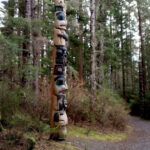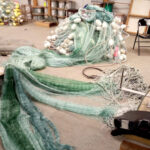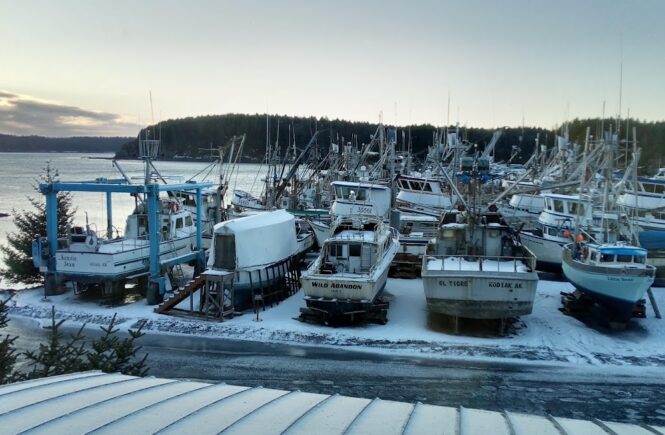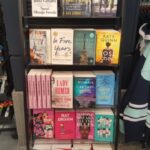It feels rather strange to be writing this blog post after so much time, to be actually reaching out to others. As I walk through the spring sunshine (and rain—this is Seattle, after all), pass others on the street, enter my local coffee shop packed with customers, I feel, like so many others, as though I have just emerged from a hibernation. Even though I have probably more friends catching COVID now than in the last waves, it just feels different. I still wear a mask most places and have been double-boosted; I think the difference is that I no longer fear that I, or my now-vaccinated friends and family, will die from some floating organism. I know the calm may not last, that yet another variant is likely to emerge. But for now, I can feel a liberating exhilaration of spring.
My new book, Woman, Captain, Rebel: The Extraordinary True Story of a Daring Icelandic Sea Captain, comes out in January and already the publisher, Sourcebooks, has it posted, with its beautiful cover, for pre-order on online retail sites everywhere. It finally feels real. I can permit myself to get excited, looking forward to book talks (in-person!?), a bit scared, hoping readers like it (one never knows…) and—so happy that the presence of Thurídur, this remarkable woman, will become known. She deserves it, and so do women everywhere, all of us to feel we “cannot” do, be,…something…because that is what society dictates to us, our confidence so often undermined by what we learn through our lives.
I was in Iceland just finishing the major research for this book when the pandemic came along. At the time, it seemed still far away, in China. But on my flight home, I listened nervously to children coughing, parents coughing—it was coincidentally spring break and the plane was packed. From practice developed during the years of recovery from a bone marrow transplant—six and a half years ago now!—I wiped down the seat, tray table, and arm rests with my sanitary wipe. It never occurred to me to wear a mask though. Why not? I now ask myself. But I never did.
I made it back to Seattle without catching this early COVID, and then, shortly thereafter, as US cases erupted, we all entered the secluded monklike existence that lasted far longer than any of us expected.
For me, this was eerily familiar. “I have done this before,” I thought. For the entire first year after my transplant, and the year before, I remained vigilant, always aware of my compromised immune system, the stark dangers that lurked if I got even the smallest infection.
During that time, I wrote a novel—a preoccupation that I now realize provided me sanity. It took me out of myself, away from obsessing about whether I was going to live or die, the labyrinth of terrible outcomes I saw lurking in every corner. It also made me focus on a future—the potential completion and publication of a project that had a life outside the often deadening daily rituals of severe illness. I don’t think now it really mattered what ambitious project I was attempting, as long as it was but something engaging that had a future.
Although this novel never found a publisher, it did allow me to connect with my wonderful agent, and it prepared me for writing Woman, Captain, Rebel, completed through this second time of enforced seclusion, the coronavirus pandemic.
I feel I was one of the very lucky ones, that during the pandemic, I did what I was planning on doing anyway—sit alone in my little at-home study, writing. It was just a bit more secluded than I had anticipated. Except for the few months it was completely closed, I walked to our local coffee shop each afternoon for a take-out coffee, my entire social life for a very long time. Through the years of compiling the research and the actual writing, I learned so much more about Thuridur, the life she lived, the people around her. I hurt as she suffered, shook my head in admiration at her strength to stand strong against enemies while at the same time cherishing her friends and retaining compassion. Through growing to know her, I also grew.




 Finally, for Women’s History Month, Hudson News, the world’s largest operator of airport newsstands—yes, the bookstores that also sell those last-minute peanuts and other snacks we all buy—has selected Woman, Captain, Rebel as one of their featured books to be displayed at all their airport stores in March!
Finally, for Women’s History Month, Hudson News, the world’s largest operator of airport newsstands—yes, the bookstores that also sell those last-minute peanuts and other snacks we all buy—has selected Woman, Captain, Rebel as one of their featured books to be displayed at all their airport stores in March!